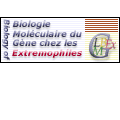
|
|















|
International Summer School
From Genome to Life:
Structural, Functional and Evolutionary approaches
|
ALLEN
John |
|
Plant Biochemistry, Box 124, Lund University, SE-221 00 Lund, Sweden title: Hypothetico-deductive science and the function of cytoplasmic genomes In chloroplasts and mitochondria, small, quasi-autonomous, cytoplasmic genomes encode core components of energy transduction in photosynthesis and respiration, together with genetic systems that permit the quasi-autonomy. From sequence information alone, there seems to be no clue to the function of this costly arrangement - each chloroplast or mitochondrial gene requires a set of nuclear genes to oversee its function. Why has the cell nucleus not acquired all the genes derived from the original endosymbiosis? Genomes must function and be regulated. Their continuity requires regulatory input. I propose that the structural genes retained in chloroplasts and mitochondria receive such input in situ, from the redox chemistry of the energy transduction in which their gene products participate. The same genes may have been readily copied to the cell nucleus to produce functional and importable protein precursors, but they would there escape this vital regulatory control. This conjecture has many ways in which it might be refuted, but the functional genomics of chloroplasts and mitochondria seem to be consistent with its predictions. Implications arise for ageing and the function and evolution of separate sexes. In addition, we may conclude that gene function requires evolutionary continuity, and we cannot therefore understand functional significance ab initio. I suggest that the idea of a purely automated, deductive route to knowledge and understanding has much in common with the doctrine of spontaneous generation, and about the same utility. http://plantcell.lu.se/john/pres/ |
|
ADDITIONAL DATA |
|
|